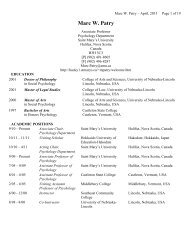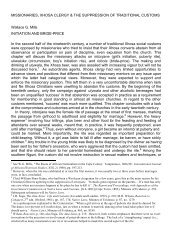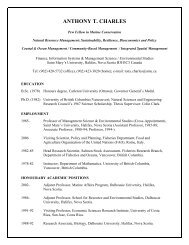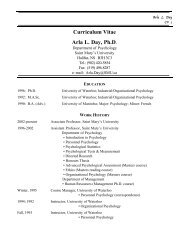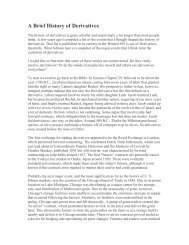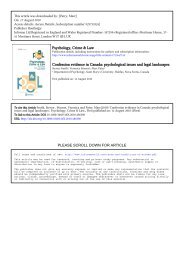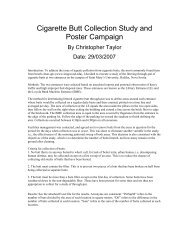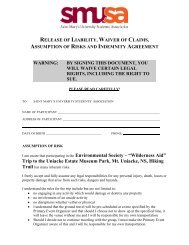Social, Economic and Cultural Overview and Assessment for Ocean ...
Social, Economic and Cultural Overview and Assessment for Ocean ...
Social, Economic and Cultural Overview and Assessment for Ocean ...
Create successful ePaper yourself
Turn your PDF publications into a flip-book with our unique Google optimized e-Paper software.
1.0 Introduction<br />
The move of Fisheries <strong>and</strong> <strong>Ocean</strong>s toward an integrated approach to oceans management,<br />
<strong>and</strong> the development of Integrated Management Plans <strong>for</strong> Large <strong>Ocean</strong> Management Areas<br />
(LOMAs), requires attention to both ecosystem aspects <strong>and</strong> social, cultural <strong>and</strong> economic<br />
considerations. DFO outlines the context <strong>for</strong> this report as follows:<br />
“The past two years have seen the development of Ecosystem <strong>Overview</strong> <strong>and</strong><br />
<strong>Assessment</strong> Reports, <strong>and</strong> ecosystem <strong>and</strong> conservation objectives. In order<br />
to successfully develop relevant objectives, however, it is also necessary to<br />
conduct social, cultural <strong>and</strong> economic overviews <strong>and</strong> assessments in the<br />
LOMAs. It must be noted that the goal of integration is to move beyond<br />
treating social, cultural <strong>and</strong> economic issues <strong>and</strong> concerns as additional or<br />
peripheral considerations toward a more proactive process that includes<br />
these objectives as drivers <strong>and</strong> integral parts. <strong>Social</strong>, cultural, economic<br />
<strong>and</strong> ecosystem objectives should be considered comprehensively as<br />
interconnected parts of a complete Integrated <strong>Ocean</strong> Management Plan.”<br />
The aim of this report is to conduct an international review of existing case studies,<br />
frameworks <strong>and</strong> methodologies of social, cultural <strong>and</strong> economic data gathering, overviews,<br />
<strong>and</strong> assessments relevant to marine management. In doing so, this report (1) covers<br />
various geographic scales but maintains a particular focus on regional <strong>and</strong>/or ecosystem<br />
based planning activities (2) includes examples from a range of countries <strong>and</strong> contexts, but<br />
concentrates on examples that can most easily be transferred to a Canadian context <strong>and</strong> (3)<br />
includes some generic works in order to help frame the discussion, but attempts to keep the<br />
approach as practical as possible, focusing on insights into real examples.<br />
The studies examined herein come from a range of situations <strong>and</strong> with a range of terminology.<br />
For example, a common term is that of a “socioeconomic assessment”. According to the Socio-<br />
<strong>Economic</strong> Manual <strong>for</strong> Coral Reef Management (Bunce, et al., 2000), such an assessment is a<br />
way to learn about the social, cultural, economic, <strong>and</strong> political conditions of individuals,<br />
groups, communities, <strong>and</strong> organizations. Bunce et al. (2000) note that there is no fixed list of<br />
topics examined in a socioeconomic assessment, but the most commonly identified topics<br />
include: gender, resource use patterns, stakeholder characteristics <strong>and</strong> perceptions, market<br />
attributes <strong>for</strong> extractive <strong>and</strong> non-extractive uses, market <strong>and</strong> non-market use values.<br />
1



